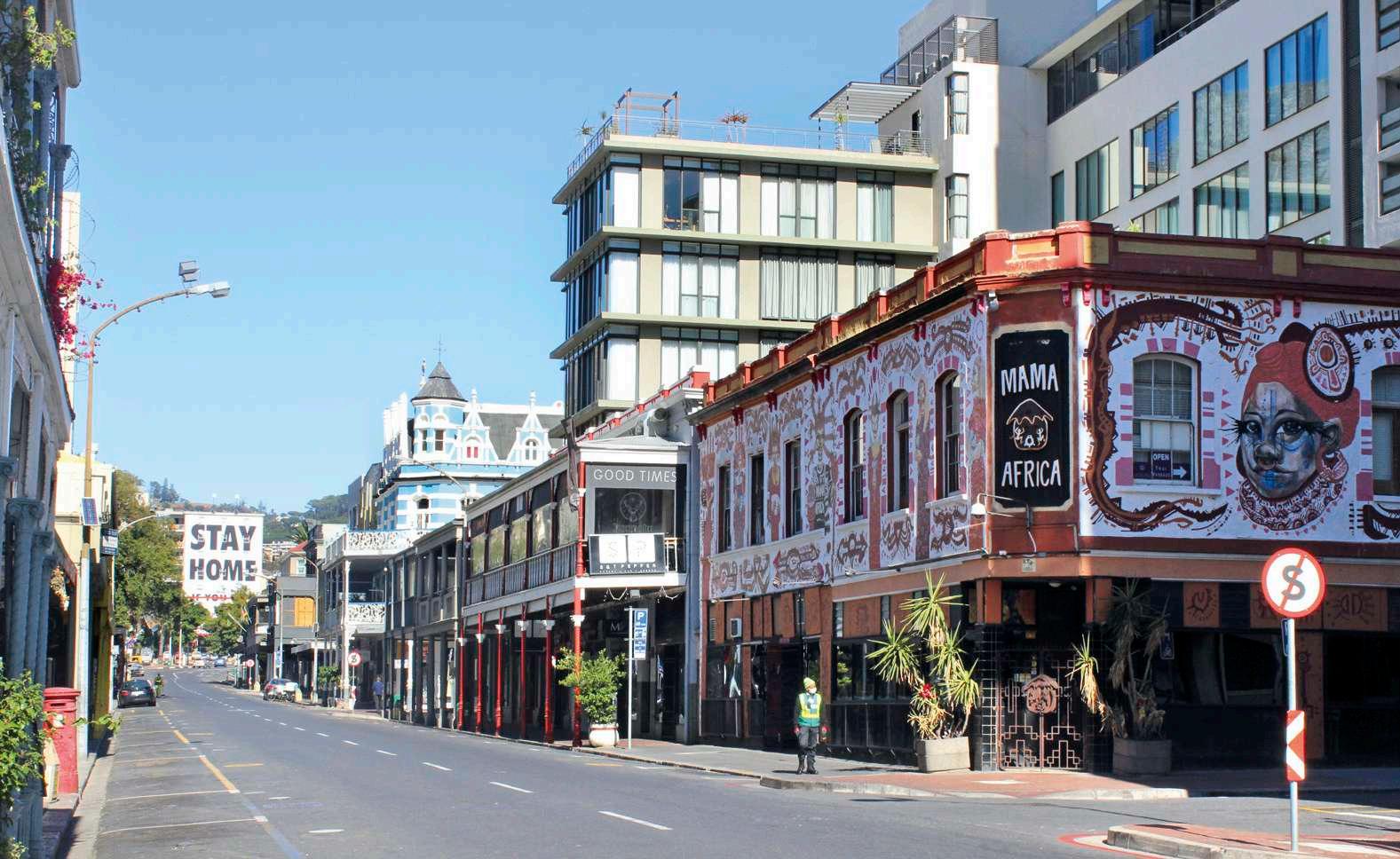
3 minute read
Long Street revival latest news
URBAN PLACEMAKING
LONG STREET REVIVAL REVIVAL
Advertisement
Refresh and renew. That’s the aim of an innovative revitalisation plan for Cape Town’s famed Long Street, which is set to drive new business into the area and counter the economic effects of Covid-19.
Long Street, as its name suggests, is just that – a long street that starts on the Foreshore at Walter Sisulu Avenue and travels right up to Buitensingel Street in downtown Cape Town. An important lifeline to the city centre, it is a key contributor to its economy. As one of the oldest and most popular streets in the Mother City, Long Street is an institution with its interesting architecture and wide array of restaurants, specialty shops and, of course, lively bars and clubs While still a magnet for revellers, it has lost some of its appeal and “has gradually fallen behind other areas of the city as the entertainment destination of choice,” says Giancarlo Bruno, chairperson of the Long Street Association and CEO of Hizone Investment Group (HIG). Bruno says the situation has been exacerbated by the pandemic and the street is a shadow of its former self. “Covid-19 has had a negative impact and has resulted in a loss of traders and tenants due to the decline of foot traffic into the street and the CBD.”
REJUVENATION PROJECT
Enter the Upper Long Inner City Rejuvenation Project, which aims to re-establish Long Street as Africa’s cultural and entertainment capital. The focus area is upper Long Street between Pepper Street and the Long Street Baths. Improvements to breathe new life into the space include increasing safety and security, deep cleaning, greening, lighting, signage, pedestrianisation and inner-city toilets. All this is being done under the “Explore Long” concept that includes a vibrant colour palette. “The theme is ‘Everyday Discovery’, and this aligns with our overall strategy for Long Street of daily encounters where you hopefully locate artists next to artisans, good restaurants and bars or discover a good product or an unexpected experience,” explains Bruno. The first phase of the project includes installing 10 to 15 parklets to “reclaim the street” for pedestrian traffic; painting murals and installing works of art; creating dedicated spaces for pop-ups and increasing pedestrianisation after hours. So far over 90 indigenous trees have been planted and one parklet is already complete. Safety ambassadors are also being employed. “There is a lot of money flowing back into Long St; there are big players who are interested in investing, and we need the brands involved in entertainment to come back to help drive the change,” says Bruno.

COLLABORATION AND CREATIVITY
The first activation, set to take place between August and September 2021, will be a “food truck market set-up in the pedestrianised zone”. Thereafter, events will take place every weekend in summer and every First Thursdays – depending on lockdown restrictions.
Explains Bruno: “We will use this event to test our safety and security plan, working closely with the Cape Town Central City Improvement District (CCID), City of Cape Town Law Enforcement and the South African Police Service.”
He adds: “The single biggest ‘ask’ we have is for the public to return to Long Street. We are working hard to make it a beautiful, safe, and engaging space. Without public support, we will not be able to achieve anything.” The key driver of the Upper Long Inner City Rejuvenation Project is the Long Street Association (LSA), an established collective that has newly elected stakeholders including residents, retailers, and landlords that have a vested interest in the area. The project was conceptualised on behalf of Indigo Properties, which owns several buildings in the area, by LSA vice-chairperson Grandt Mason, an industrial designer and private consultant. It was then presented and recently adopted by the LSA.
COMMON GOAL
The CCID is working closely with the LSA and has been involved in the drafting of the proposal. The organisation is providing services including Safety & Security, Urban Management, Social Development and Communication. Urban Management recently cut in half and varnished 45 wine barrels for planting trees and played a facilitating role in bringing LSA and City of Cape Town Recreation and Parks Department representatives together. This resulted in City Parks donating 300 Olive and Celtis Africanus trees for the barrels.
CCID CEO Tasso Evangelinos says it’s heartening to see so many stakeholders participating in a community-driven revival of the area. “Any plan that addresses public space management and has the involvement and buy-in from the community is a winner. We need more of these initiatives in the CBD.”

